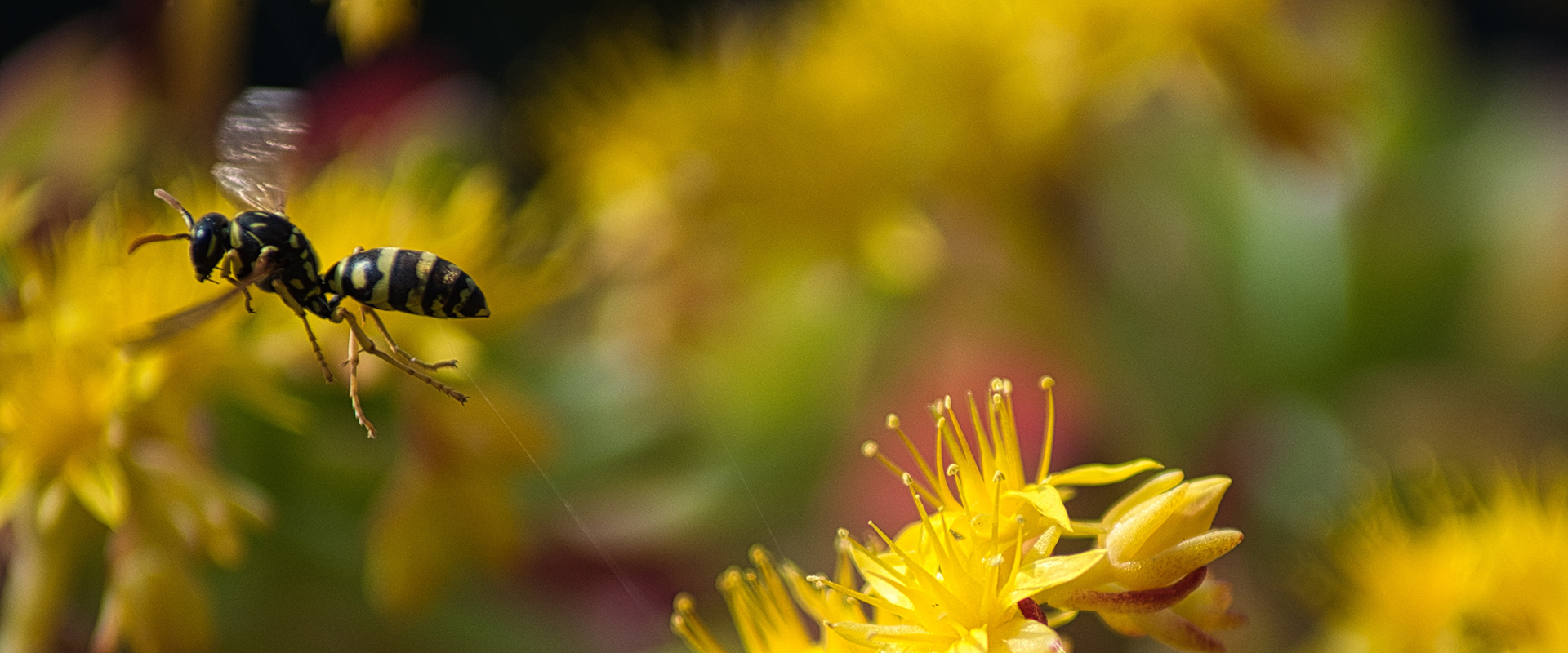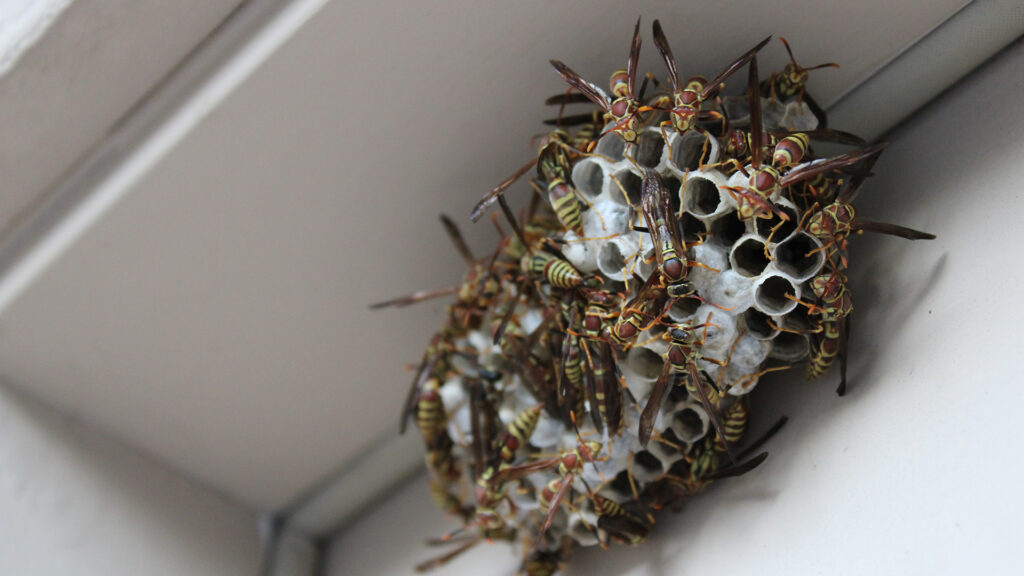The presence of a wasp nest in your garden or home can be a source of stress and danger. Wasps can become aggressive when they feel threatened and their stings can be painful. It is important to know how to react safely and effectively in case of a wasp nest. In this article, we give you tips on what to do to manage a wasp nest appropriately.
Identification of wasps
Being able to correctly identify wasps is essential to take appropriate action. Wasps have thin, smooth bodies, with yellow and black stripes. They also have folded wings in the resting position.
Hazard assessment
Before taking any measurements, assess the level of dangerousness of the wasp nest. If the nest is located away from your catchment areas, and the wasps do not exhibit aggressive behavior, it may be best to leave the nest in place, as wasps play an important role in the ecosystem as predators of other insects.
Safety precautions

Before approaching the nest, take the necessary precautions to ensure your safety:
- Wear long protective clothing, such as long pants and sleeves.
- Wrap your face with a scarf or face mask to avoid bites on your face.
- Wear thick gloves to protect your hands.
Do not disturb the nest
If possible, avoid disturbing the wasp nest. Wasps can become aggressive if they feel threatened, which can lead to multiple and painful stings. If the nest is far from frequented areas and does not pose an immediate threat, it is best to leave it alone.
Calling on a professional
If the wasp nest poses a threat to your safety or is located in an area where it can cause problems, it is recommended to seek professional pest control. Professionals have the skills and equipment to dispose of the nest safely and effectively, taking all necessary precautions to protect your health and that of the environment.
Future prevention
To avoid future wasp infestations, here are some preventive measures to take:
- Eliminate food sources by keeping garbage cans tightly closed and cleaning up food spills regularly.
- Seal holes and cracks in walls, windows and doors to prevent wasps from building nests inside your home.
- Keep wasps away from your garden by using natural plant-based repellents, such as mint, lemongrass or lavender.
By following these tips, you will be able to manage a wasp nest safely and effectively, while taking steps to prevent future infestations. If you have any doubts or concerns about managing a wasp nest, do not hesitate to call a professional for appropriate intervention.
FAQs
Q: Are wasps dangerous? A: Wasps can become aggressive and sting when they feel threatened. Their bites can be painful and in some cases they can cause severe allergic reactions. It is important to take precautions when near a wasp nest.
Q: When should I hire a professional to eliminate a wasp nest? A: It is recommended to seek professional help when the wasp nest poses a threat to your safety or when it is located in an area where it can cause problems. Professionals are trained to eliminate nests safely and effectively, while taking the necessary precautions.
Q: Can wasps reuse an old nest? A: No, wasps usually build new nests every year. However, they can be attracted to old nests, so it is recommended to remove them after the end of the wasp season.
Q: How can I prevent wasp infestations in my garden? A: To prevent wasp infestations, eliminate food sources by keeping garbage cans securely closed and cleaning up food spills. Also use natural plant-based repellents to keep wasps away from your garden.
Q: Do wasps die in winter? A: Worker wasps usually die in winter, leaving only fertilized females that survive to create new colonies the following spring.
